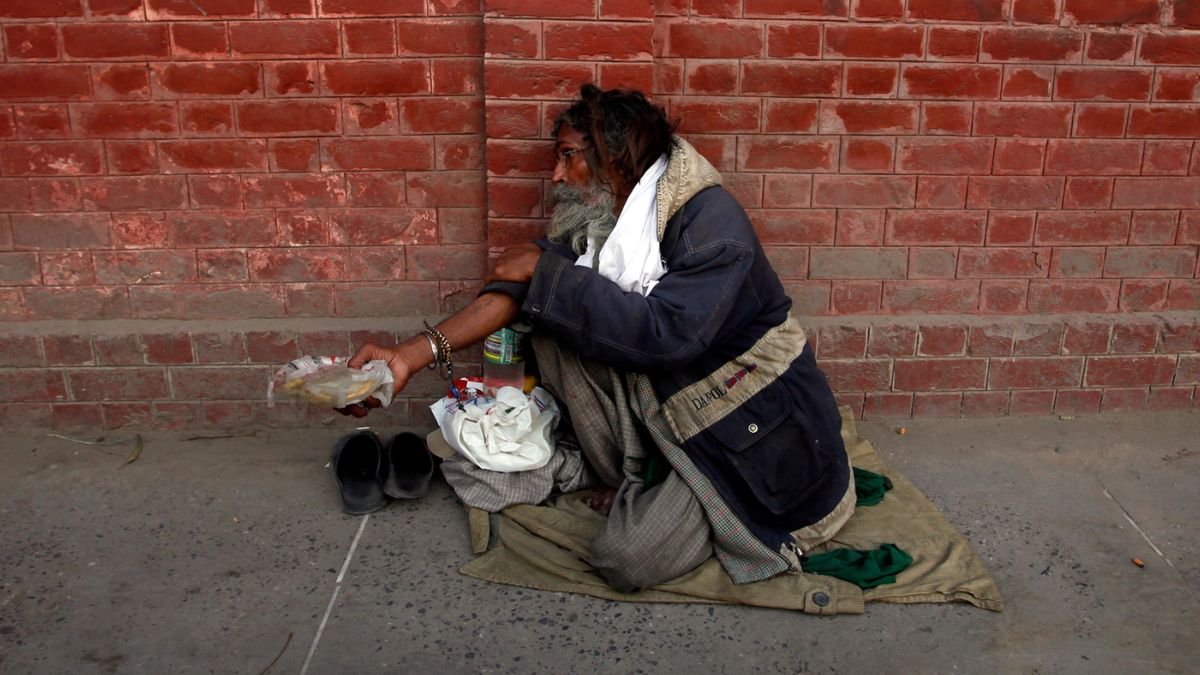The world is troubled as beggars from Pakistan flock to cities across the globe.
Pakistan has put approximately 4,300 beggars on the Exit Control List (ECL) in an attempt to stop them from travelling abroad.
ALSO READ | How Pakistan’s ‘export’ of beggars has Saudi Arabia seething
Pakistan’s Interior Minister, Mohsin Raza Naqvi, briefed Saudi Arabia’s Deputy Interior Minister, Nasser Bin Abdulaziz Al Dawood, about the steps taken by the Islamic Republic to crack down on the ‘mafia’ allegedly involved in sending beggars to the kingdom, according to the Pakistani newspaper Dawn.
Why did Pakistan put over 4,000 beggars on a no-fly list?
The Pakistani government took this step following a warning from Saudi Arabia.
The announcement came after Saudi Arabia raised concerns in September, urging Pakistan to prevent beggars from misusing Umrah and Hajj visas to travel to the holy cities of Mecca and Medina for begging. Notably, Umrah is an Islamic pilgrimage to Mecca that can be taken at any time of the year.
Many West Asian countries, including Saudi Arabia, have warned Pakistan of stringent measures if the ’export’ of beggars was not solved, according to a report by India Today.
In September, Saudi authorities pointed out the growing influx of beggars entering the Kingdom under the pretext of religious pilgrimages. In response, Pakistan’s Ministry of Religious Affairs announced plans to introduce the ‘Umrah Act,’ aimed at regulating travel agencies involved in organising these trips and bringing them under legal scrutiny.
This was not the first time Saudi Arabia had flagged the issue. Last year, similar concerns were raised during the Hajj season. Further, in May, Saudi Arabia issued a fatwa forbidding Hajj without proper permits, with violations resulting in deportation and a fine of 10,000 Riyals (about Rs 2.22 lakh).
Earlier this year, Pakistan revoked the passports of over 2,000 individuals identified as professional beggars harming the country’s international image, Dawn reported. Those found begging abroad now face a seven-year passport suspension, the report said quoting sources.
Officials in Pakistan argue that these measures are essential to protect the nation’s reputation and the dignity of its citizens. A zero-tolerance policy has since been enforced to stop the practice of beggars travelling to Saudi Arabia, Pakistan’s Ministry of Interior said in a statement.
ALSO READ | Pakistan and Bangladesh establish direct sea route. Should this worry India?
The ‘beggar’ problem
Pakistani beggars are a common sight in Saudi Arabian cities, particularly in Mecca, Medina, and Jeddah, where their presence has become a growing problem.
With rising inflation and worsening economic conditions, many Pakistanis travel to West Asian countries, including Saudi Arabia and the UAE, under the guise of religious pilgrimages but resort to begging upon arrival.
In September last year, Zeeshan Khanzada, Secretary of Overseas Pakistanis, revealed that 90% of beggars detained in West Asian countries were Pakistani nationals.
“Ambassadors of Iraq and Saudi Arabia have told us that Pakistani beggars travel abroad under the guise of ziarat (pilgrimage) on Umrah visas and later engage in begging on the streets,” Geo News Urdu quoted Khanzada as saying.
Pakistan’s Overseas Ministry Secretary Zulfiquar Haider said last year that most pickpockets arrested at holy sites like the Haram are also Pakistanis.
“Beggars are leaving Pakistan en masse, often travelling by boatloads, and then exploiting Umrah and visit visas to beg from pilgrims abroad," he was quoted as saying by the Express Tribune.
Pakistani beggars in Saudi prisons
In Saudi Arabia, begging is considered a criminal offence under the law, punishable by up to six months in prison and/or a fine of up to 50,000 Riyals for those who engage in, encourage, or facilitate it.
Due to the strict laws, several Pakistani beggars have been locked up in the prisons of the country. As of 2023, around 10 million Pakistani citizens were living abroad, with a notable number reportedly involved in begging, Khanzada said.
ALSO READ | Won’t go to brotherly countries with begging bowls: Pakistan’s PM Sharif
The spread of Pakistan’s beggar problem to Saudi Arabia and other nations has led to stricter visa regulations and increased scrutiny for legitimate visa applicants. Notably, Saudi Arabia has warned Pakistan that failure to address the issue could negatively affect the ability of Pakistani Umrah and Hajj pilgrims to obtain visas.
Pakistani beggars offloaded from Saudi flight
In October last year, 16 alleged Pakistani beggars posing as pilgrims were removed from a Saudi-bound flight and arrested for attempting to travel to the Gulf Kingdom to engage in begging.
The Federal Investigation Agency (FIA) arrested the group, which included 11 women, four men, and one child, from a flight departing from Multan in Pakistan’s Punjab province, Dawn reported.
The FIA stated that the group was travelling on Umrah visas and admitted they were required to hand over half of their earnings from begging to the agents who helped with their travel arrangements.
ALSO READ | Why are polio cases rising in Pakistan once again?
‘India reached the Moon, we stumble’
Last year, Zulfiquar Haider mentioned that the large-scale movement of beggars had also triggered “human trafficking.” He said that Saudi Arabia was now prioritising skilled labour over untrained workers.
Pakistani Senator Rana Mahmood ul Hassan pointed out that the country’s unemployment crisis had left as many as 50,000 engineers jobless.
“India chand par pahonch gaya hai, aur hum rozana koi chaand charha dete hain (India has reached the moon, while we stumble every day),” he said.
The senator added, “Our people are now ready to work on wages lower than those of workers from Nepal and India.”
Discussing the Middle East, he mentioned that approximately three million Pakistanis were in Saudi Arabia, 1.5 million in the UAE, and around 200,000 in Qatar.
With inputs from agencies
)